#but we've them be black for all of 1.5 episode now so
Explore tagged Tumblr posts
Text
the doctor isnt neurodivergent or autistic or adhd or nonbinary or genderqueer or asexual. what the doctor is, is Not From Here
#which necessarily of course says something abt their (non)whiteness#(i had all these words in quotation marks first so mentally add those to whiteness too)#but we've them be black for all of 1.5 episode now so#lets see how that develops you know#also i dont think i understand the politics of that part well enough to say much abt it#not that i probably understand the politics of these parts better but#im annoyed enough abt this Thing happening these years. in these 20s i guess. the 'representation' thing#to complain abt it anyway#the dsm isnt real and it isnt gonna fuck you buddy#maybe i'll read some books and then one day i'll write an essay driven by spite and pettiness#i wonder if i can make the thesis statement about the tension between their status of main character#in a 60 year running family adventure show vs this therapy thing we're doing now#like. you cant do that. in terms of like. what story is and does. what a character is and does. it strains#in an interesting way. like im not saying they Shouldnt have done it. im just observing. that you cant do that really. i think#or maybe you can! but i'll find that out#i also dont know shit abt narratology or whatever so. need to read books first. sigh#always have to pause my thoughts to read myself in first its so annoying. esp bc i rarely really do#bc then new thoughts new things to do you cant do EVERYTHING. you can do almost nothing. bane of my existence really#but like you might even be able to say smth interesting here about whether you can call them traumatised at all#remember that article i saw around on tumblr a few years ago i think that was abt like. some scholar in the middle east maybe#saying that ptsd is a western thing bc it necessitates a Post#all of this is western. psychiatry is western. its all stories. how you conceptualise trauma is a story#whos Other is story#where youre from is a story what you stand for is a story who you are is a story#ah. checked the article. dr samah jabr. palestinian. i'll start with her book maybe
63 notes
·
View notes
Note
Hello! So im fairly new to the BL world and I was wondering if you could explain to me why Korean BLs are so short? As in why each episode is only 10-15 min each when other korean dramas I've watched are usually 60-90 minutes. Thank you!!!!
Ah ha. Oh look, I got me an essay prompt. Yay!
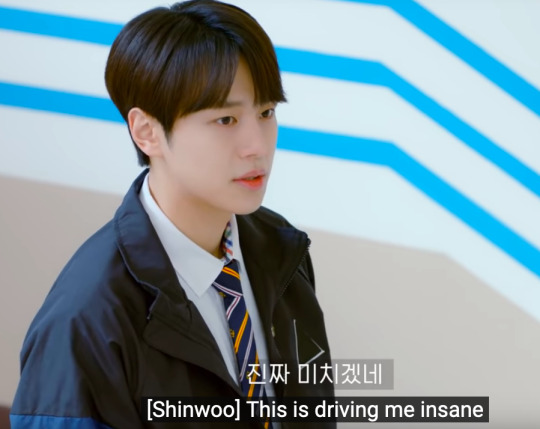
Why Are KBLs So Short Compared to Regular Kdramas?
So for those who aren't familiar, most Kdrama romances are 16 eps 45 min fresh content, for an average total run time of about 6-8 hours. (Some of their suspenses and such go longer, and occasionally - though not often - there will 2nd seasons).
Most Kdrama BLs are 8 eps 15 minutes each for a total run time of 2 hours, which actually works out to about 1.5 hours of fresh content (and there have been, until this year, no 2nd seasons.) Which is why so many are then cut into movies, because they're naturally movie length. This length for KBL started in late 2019 when Korea really started ramping up modern style BL production. (They have BL before this but it’s...different.)
The longest BL we've gotten out of Korea is Light On Me at 4 hours. And that's seriously unique. That production house, WATCHA, is about to produce its next BL Semantic Error, and that will be... 8 eps of 15 mins. So, yeah.
Why?
Okay, so there's a few things going on here.
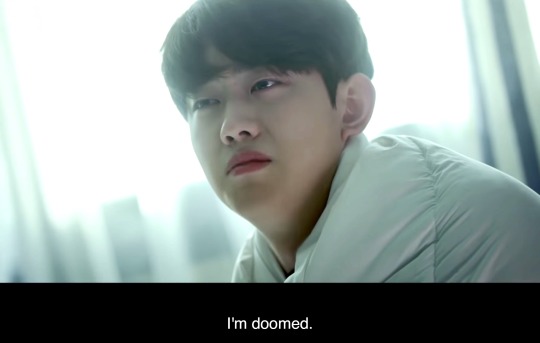
1. Queer Liminality
Never discount the fact that a marginalized community gets marginalized media (when its catered to at all). There's always going to be less of it and shorter of poorer quality because it's queer. Now BL might not be made with a queer lens especially from Korea (with noted exceptions of course) but it is still queer. Boys kiss boys, it qualifies. For the greater culture and population of Korea this makes the art form itself:
subversive
liminal
taboo
Here's a few side examples of what I mean:
Queer content has its own shelf in most bookstores in the USA (if we’re lucky). Queer romances aren't shelved with other romances, for example. (That's when romance gets a shelf at all, but that’s another -feminist- issue.) We can talk about how bookstores themselves are fading away, but frankly digital algorithms act similarly. Now, those of us who prefer to read primarily queer content are fine with this on the surface, 'cause we know where to look, but the act of othering means that queer content doesn't have access to a general audience who might ALSO enjoy it, because it is never even put in front of them.
It doesn’t even have a chance.
This is a normalization problem. (I talk about pro normalization and my own stance on this kind of queer advocacy with regards to BL, and not calling out het fans of the genre, here.)
Here in the states, Black centered cable TV channels deal with the same issue. Back in the 70s and 80s the "feminist storefront" is another example.
(Frankly, even colors even get marginalized... Americans nurse cultural associations with wearing purple and pink, for example. People are WEIRD.)
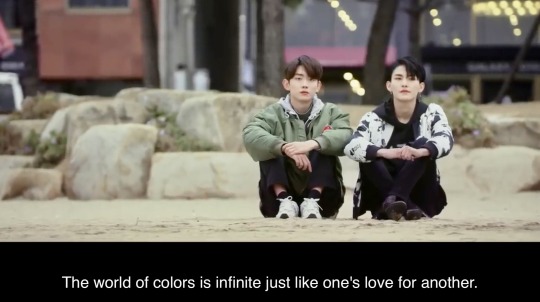
2. Underfunding
See point 1. When you deal with art or media that challenges the status quo in any way, it's going to struggle to meet funding demands. Even if there is an audience, and even if that audience is big, you're not going to be able to reach it because it's not just talent (and Korea doesn't seem to have any issues there) it's marketing and distribution. (Right up to things like airtimes on mainstream channels).
Think about how much queer content Hollywood produces as compared to het? Think about how many of those get nominated for awards? Lack of funding = lack of content = lack of recognition = lack of funding.
Vicious circle.
Also, many Asian dramas rely on sponsorship deals which means the brand and company has to be okay with being associated with queerness. Even lean into it.
(Think about Subaru and the lesbian bias. L-Word capitalized hard on an existing stereotype. But it worked for Subaru and this show because the audience was happy to embrace both. Subaru knew their brand and the watcher base for this show, but also that discoloration was unlikely. Discoloration is the projected negative impact of any given sponsorship deal. Would they have sponsored a show like L-Word in Asia? Probubly not.)
A lot of Korean brands do not want to sponsor queer content, even pretty sanitized KBL because they are scared of the repercussions.
Marginalized groups get marginalized in all ways.
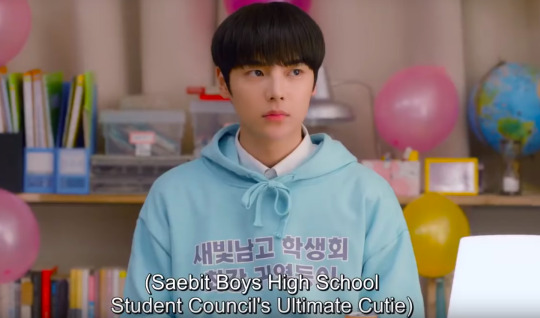
3. Cost of That Pretty Pretty High Production
Following on from the above and realizing that there is already a funding issue, Korean BL is more expensive to produce than most because they go for a strong aesthetic and high production values (Japanese BL as well). Cost of living and cost of talent aside, I would still guess that something like To My Star costs at least double what, say a Thai pulp like You're My Sky costs (at 3x the cast, and 6x the length) to produce, maybe 3x.
One way to cut cost and not sacrifice quality is simply to film over much much shorter times. Some of these KBLs could theoretically have been filmed in a week. I'm thinking My Sweet Dear had an incredibly short filming window. (Actual filming, for anything with low CGI, will always be the most expensive part of the process.)
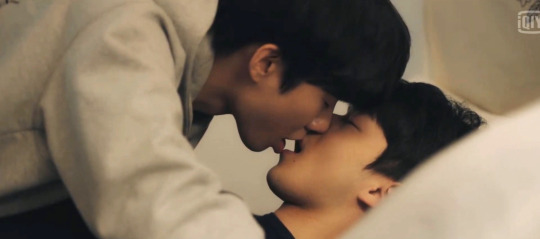
4. History with the Genre
This is an interesting one. Korea has, without question the strongest record for producing queer content in microfilm length of any country in Asia - by an order of magnitude. And for almost as long as Japan has been producing live action yaoi. (Now ask me why this is the case? I HAVE NO IDEA.)
Now Korea's history with this short form is NOT BL. It's queer lens and very gay. But I believe it must have established a precedent for shortness. (It certainly birthed Strongberry for which we are eternally grateful.)
So I think Korea just associates queer content with short form in general.
This might also have something to do with Japan. Historically Japanese live action yaoi were all movie length, and the early Korean film industry (pre 2010) is heavily influenced by Japan. I also think their BL traditions are pretty strongly linked. Because Korean look to manwah much like Japan looks to manga, for inspiration.
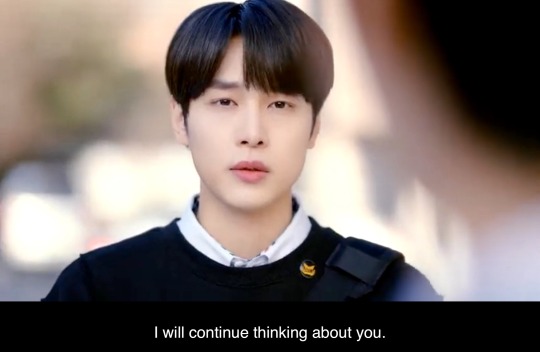
Conclusion
So all this combines to make short form BL easier for Korea to produce, and I actually don’t see that changing anytime soon. (Oh boy would I love to be proved wrong. I am DIEING for a gay Decedents of the Sun. DIEING.)
Interestingly enough, our best bet for something long from Korea would be if they did a co-funded project (like Peach of Time) only set in Thailand and using Thai talent (AKA Korean production + money with Thai production costs.)* But the Hallyu agenda renders that idea verboten at this point. Korea is not going to spend money on a drama that's not located in Korea and advocating for Korean culture. Not even a BL, and certainly not a long form BL.
* I don't count 2017's Tropical Night because OMG reasons (technically it takes both Korea and Thailand to task as a culture commentary). I honestly don't think Korea 2022 would allow this movie to be made at all.
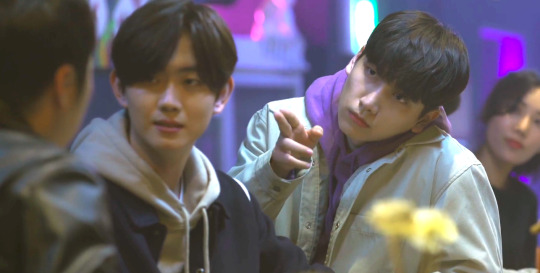
I should add for the record that I actually enjoy Korean BL as it stands. I don’t mind its shortness. And they occupy more of my top BL’s of all time list than any other country. This is meant as an honest window into the film industry and production, not as a criticism of Korea or KBL. There’s a difference between critique and criticism, mm’kay?
Righto, I’m done now.
Turns out, not tho. Literally the day I wrote this Strongberry’s exo talked openly on their YouTube channel all about the BL industry and queer production in Korea. He’s remarkably honest (and totally adorable).
(source)
#queer critque#queer film industry#film industry#film critique#kdramas#kbl#korean bl#korena dramas#strongberry#history of korean cinema#light on me#too my star#peach of time#tropical night movie#Color Rush#Color Rush 2#My Sweet Dear#Decedents of the Sun#k-dramas#K-drama#k-bl
290 notes
·
View notes